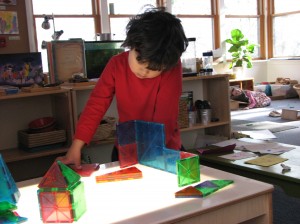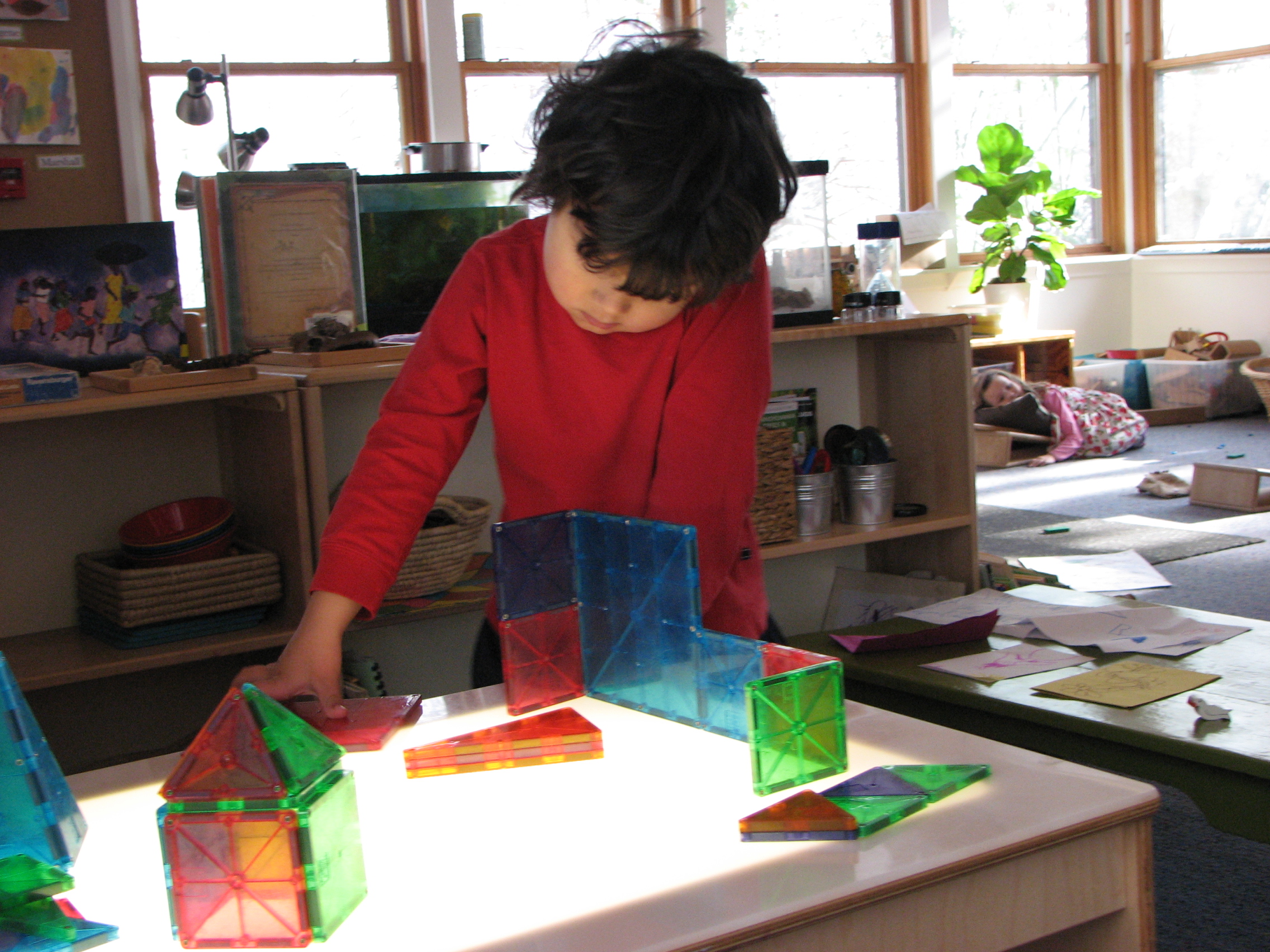Play, and Learning
 During one of our staff meetings about play at Miquon earlier this year, we argued the point of whether children taking on roles — as they do in many of our social studies simulations, crossing the Western United States or living in 17th Century Pennsylvania — could be considered play. In many ways, those exercises meet the play standards described in Bob Hughes’ taxonomy. Taking on the qualities and jobs of a character from another period or place could be social play, dramatic play, and/or fantasy play, couldn’t it? If so, could we consider games like Apples to Apples, and even the board game, Executive Decision, that we employ to build vocabulary and experience how the stock market works be forms of play as well? Does the concept of play in any given Miquon day expand beyond the single hour of “choice” we assign children in 1st Grade and above?
During one of our staff meetings about play at Miquon earlier this year, we argued the point of whether children taking on roles — as they do in many of our social studies simulations, crossing the Western United States or living in 17th Century Pennsylvania — could be considered play. In many ways, those exercises meet the play standards described in Bob Hughes’ taxonomy. Taking on the qualities and jobs of a character from another period or place could be social play, dramatic play, and/or fantasy play, couldn’t it? If so, could we consider games like Apples to Apples, and even the board game, Executive Decision, that we employ to build vocabulary and experience how the stock market works be forms of play as well? Does the concept of play in any given Miquon day expand beyond the single hour of “choice” we assign children in 1st Grade and above?
Ultimately, we decided no. There is a crucial distinction between behaviors that are controlled by adults and those that are determined by the children themselves. Because children like it — and time flies — does not mean the activity fits in our definition of play, “a process that is freely chosen, personally directed, and intrinsically motivated.” (Please see Peter Gray’s excellent article in Psychology Today for more on the definition of play.) It is true, we sometimes use “games” and simulations to teach, but, when we do, we intentionally embed and assess the multiple learning goals within those activities. While we put tremendous value on independence and discovery in learning at Miquon, we don’t imagine that in our classrooms children are engaged in the true definition of play. For us, if it is play, there must be little emphasis on the end result or goal. Play is done for its own sake — joyfully purposeless! However, we firmly believe that the qualities of choice, personal investment, and intrinsic motivation are critically important components of an effective education and the foundation of self-actualization. (I commend this podcast of an interview with Dr. Stuart Brown on the value of play in developing children’s character. It will help you see the value in your children’s unstructured time this summer!)
As we just passed the “official” first day of summer, I have been thinking a lot about these kinds of definitions or frames — the social constructs we allow to determine our expectations and mindsets. The minutes of daylight at the solstice seem unassailable, but whether we expect a vacation will soon follow June 21st depends entirely on our role: student, employee, retiree. Why does our culture communicate to children how lucky they are to be on summer vacation? Why is education taken less seriously if children come home and say they “played” all day? How might we re-frame our notion of education, embracing the idea that humans learn the most when in Lev Vygotsky’s “zone of proximal development,” or Mihaly Csikszentmihalyi’s place of “flow,” which he describes in his groundbreaking book of the same title?
Csikszentmihalyi writes, “The best moments usually occur when a person’s body or mind is stretched to its limits in a voluntary effort to accomplish something difficult and worthwhile.” Flow describes a Utopian model of education — and it also sounds like play.
One of our teachers finished our debate over whether the classroom simulations are play by saying, “Isn’t it really all about our mindset?” How we think and feel, our approach, and our frame determine whether we see an activity as a chore or as an adventure. Tom Sawyer famously taught us that. Whether it is play for play’s sake, or more adult-driven games that have a particular learning outcome in mind, our goal at Miquon is that children run toward their education, can’t wait for it to begin, and endlessly daydream about all the wonderful things they are going to do when they have the time to explore them during a school day. For the most part, we hit the mark and we do it the way our mission statement says: by “encourag[ing] wonder, inquiry, independence, and discovery.”
This summer, Miquon parents and staff are reading Mindset by Carol Dweck. While not about the frames we put around work and play, the book is about how we can move our children and students (and ourselves) into a “growth” mindset and avoid the pitfalls of the current “self-esteem” movement and the real dangers of wrongly placed praise. Dweck provides extremely easy-to-digest tips on how to talk with children so that they become inspired instead of defeated, and work hard to reach their goals. The book provides a complementary path to building the intrinsic motivation we see in children who view education as play.
